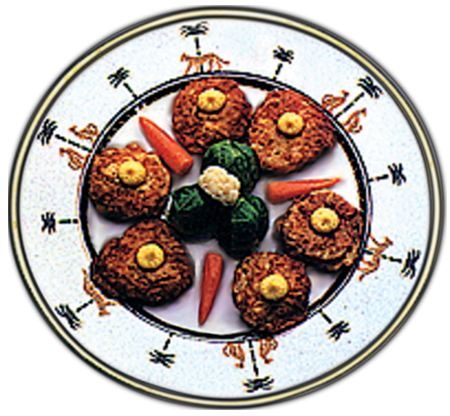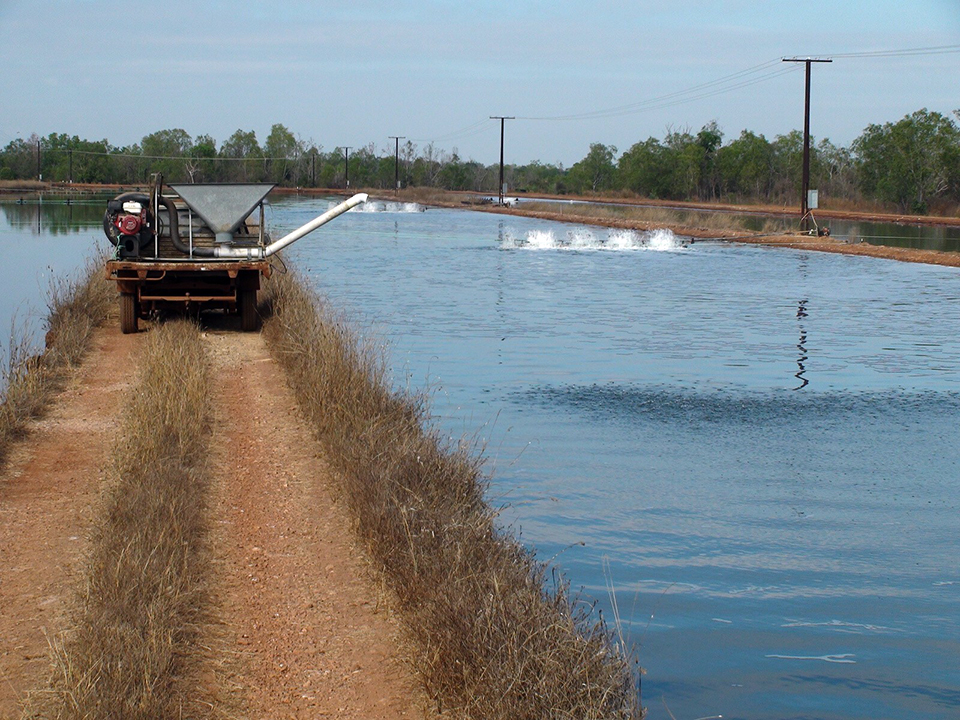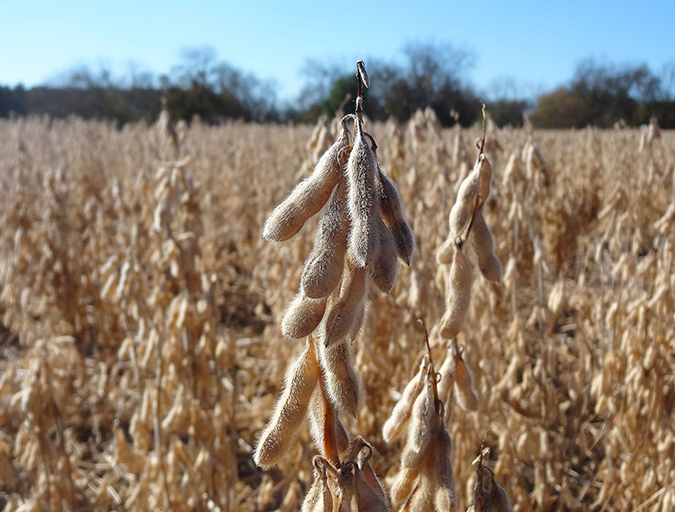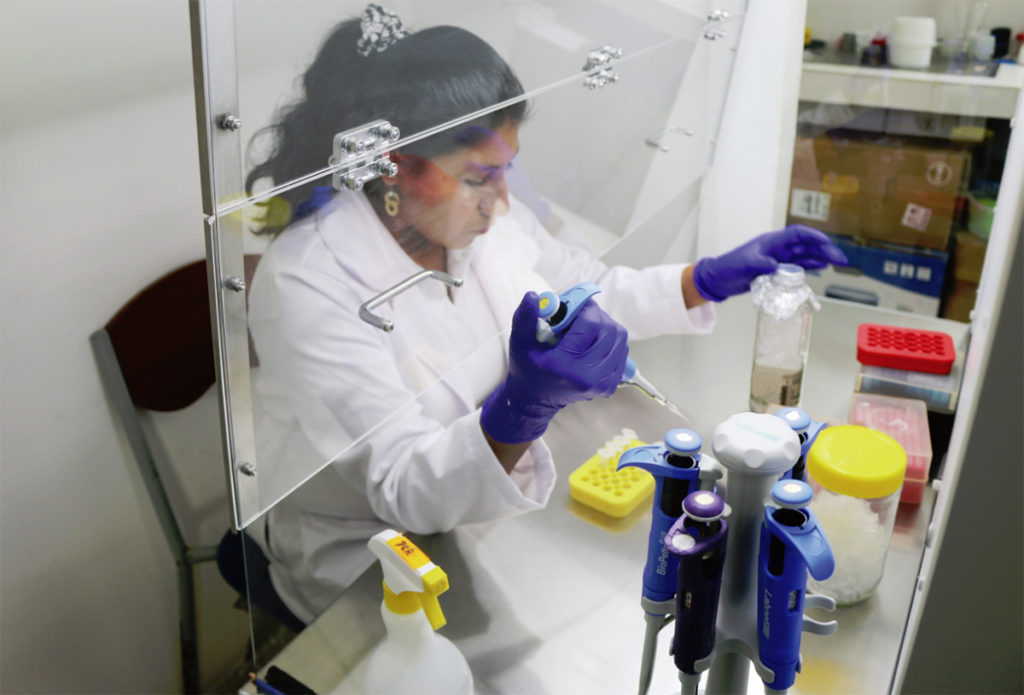Phosphates increase water retention, improve texture and reduce potential for rancidity
 Many farms that raise alligators from eggs to adults have become part of the expanding aquaculture industry in Florida, USA. Wild alligators grow about 30 centimeters per year in length, but farm-raised gators – which receive balanced diets in heated buildings – can reach 183 cm in 36 months.
Many farms that raise alligators from eggs to adults have become part of the expanding aquaculture industry in Florida, USA. Wild alligators grow about 30 centimeters per year in length, but farm-raised gators – which receive balanced diets in heated buildings – can reach 183 cm in 36 months.
The growing alligator industry needs help in developing new products, especially value-added meat products. Through a United States Department of Agriculture Risk Management Agency grant, the Florida Department of Agriculture and Consumer Services asked the authors to develop marketable meat products using alligator meat.
Preliminary findings
Alligator meat goes through changes after it has been processed. At the onset of rigor, anaerobic metabolism depletes glycogen reserves, accumulation of lactic acid drives pH down to around 5.6, and the ability of protein to bind moisture deteriorates significantly. Approaching postrigor conditions, the pH drops to around 5.3 and more bound moisture is lost. This leads to a dry, stringy product.
In order to have a “winning” alligator meat product, it is necessary to increase the water-holding capacity of the meat. This increase will result in a value-added product with more moistness and tenderness, and consequent better texture.
Processing evaluation
Farm-raised alligator meat was delivered to a meat-processing plant in Canton, Ohio, where experts on meat and poultry processing promptly evaluated it. After sautéeing some of the meat with no flavors or seasonings, its texture and tenderness were of concern because the meat was dry and rather tough. This confirmed the authors’ findings.
The goal was to increase the pH of the meat, rehydrate it to prerigor levels, and improve texture. A marinade using salt, broth flavoring, and sodium phosphate with a pH of 9.5 was formulated.
Phosphates improve texture
Phosphates were used because they are beneficial in increasing water retention by raising the pH back to 6-6.4, improving texture and retarding lipid oxidation, which reduces the potential for rancidity. A 15 percent solution was added to the alligator and vacuum tumbled for 18 minutes.
In addition to the marinated gator, “Cajun-style” gator nuggets and sausage, and breaded gator patties were prepared and frozen. Phosphates were also used in the formulation of these products to retain moisture for better texture and meat shear.
“That’s alligator!”
 All frozen products were sent to a June 28 workshop at the University of Florida in Gainesville that addressed all aspects of alligator usage, from tanning and manufacturing to meat processing. Most of the work-shop participants were alligator meat “connoisseurs.” When it came time to taste the new creations, the cry of “That’s Alligator!” reverberated through the university auditorium.
All frozen products were sent to a June 28 workshop at the University of Florida in Gainesville that addressed all aspects of alligator usage, from tanning and manufacturing to meat processing. Most of the work-shop participants were alligator meat “connoisseurs.” When it came time to taste the new creations, the cry of “That’s Alligator!” reverberated through the university auditorium.
The texture and flavor of the marinated gator were well received by the participants. All products were perceived to have good appearance, excellent texture and firmness, as well as great flavor.
Conclusion
There is marketing potential for alligator meat products, but the alligator industry must commit further resources to select the right products for the marketplace. Phosphate treatments will likely increase the market viability of whatever alligator meat products are finally selected.
(Editor’s Note: This article was originally published in the August 2002 print edition of the Global Aquaculture Advocate.)
Now that you've reached the end of the article ...
… please consider supporting GSA’s mission to advance responsible seafood practices through education, advocacy and third-party assurances. The Advocate aims to document the evolution of responsible seafood practices and share the expansive knowledge of our vast network of contributors.
By becoming a Global Seafood Alliance member, you’re ensuring that all of the pre-competitive work we do through member benefits, resources and events can continue. Individual membership costs just $50 a year.
Not a GSA member? Join us.
Authors
-
Peter Oberacker
Senior Food Scientist
Gallard Schlesinger Industries, Inc.
584 Mineola Avenue
Carle Place, New York 11514 USA[32,109,111,99,46,100,114,97,108,108,97,103,64,114,101,107,99,97,114,101,98,111,112]
-
Larry Guerin
Senior Food Scientist
Gallard Schlesinger Industries, Inc.
584 Mineola Avenue
Carle Place, New York 11514 USA -
Laura Garrido, M.S.
Seafood Specialist
Aquatic Food Products Lab
University of Florida
Gainesville, Florida, USA
Tagged With
Related Posts

Responsibility
Brazil’s inland aquaculture
Freshwater fish culture is practiced in every state in Brazil, primarily at small-scale earthen pond facilities, but tilapia culture in reservoir cages is increasing.

Responsibility
Phosphates, pH management control algal blooms in barramundi ponds
Pond pH had a strong effect on the effectiveness of a product applied to remove excess phosphate to control algal blooms in eutrophic aquaculture ponds.

Aquafeeds
A look at phospholipids in aquafeeds
Phospholipids are the major constituents of cell membranes and are vital to the normal function of every cell and organ. The inclusion of phospholipids in aquafeeds ensures increased growth, better survival and stress resistance, and prevention of skeletal deformities of larval and juvenile stages of fish and shellfish species.

Health & Welfare
Asepsis key to prevent contamination in shrimp hatcheries
Maintaining biosecurity and asepsis in larval shrimp production is a key component of the production chain in Ecuador, which requires the production of 5.5 billion larvae monthly from 300-plus hatcheries.


